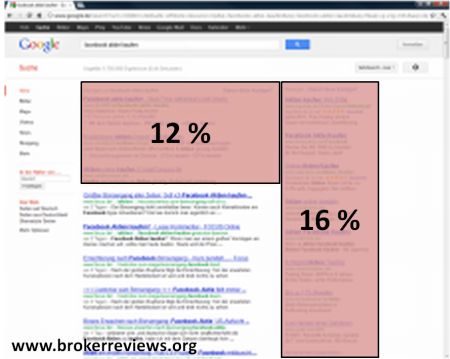As economic growth in various areas around the world remain anemic and investments continue to be sluggish, the littlest bit of financial news that offers the potential for major payback is always guaranteed to attract the attention of many.
It is in that context that bitcoin, arguably the “digital currency of the future”, has stepped into the limelight and has been gaining the attention of many around the world. The rise of bitcoin is by no means meteoric but recent trends have given this currency some level of legitimate boost and lasting power.
In this article, we’ll examine the basics of the bitcoin as the next currency to watch out in global finance. We’ll also look at how you can get hold of some bitcoins. Lastly, some introduction into bitcoin trading as a potential lucrative business is in order. If you want the fast facts on the bitcoin and some basic understanding as to how it can help you and your financial bottom line, this article is written with you as the target reader in mind.
What is Bitcoin?
Bitcoin, right now, is a virtual or digital currency. Specifically, it is a peer-to-peer payment system first invented in 2009. As such, there are no valuable physical versions of the bitcoin. Some “physical coins” and “hard paper currency” have been printed or minted but these are mere representations of the actual currency. The real valuable bitcoin only resides in the web, controlled by a complex system of cryptographically protected programs designed to regulate all transactions that involve the bitcoin.
That last part is a bit complicated for some people so it requires a more detailed explanation. In the real-world, the institutions that regulate the use of currencies are the banks, specifically the Central Banks. In the US, the Federal Reserve performs this function. In Europe, it is the European Central Bank. Almost every country in the world that prints its own currency has its own central bank that guarantees the value of the currency.
In the case of the bitcoin, it’s all controlled by a public database that’s heavily protected with complex security programs. This public database known as the block chain keeps a thorough accounting of all transactions involving the bitcoin, past and present. This is done to ensure the integrity of each transaction as well as to guarantee that any specific bitcoin is not double-spent or owned by two or more people at any given time.
To own a bitcoin, users must first open a bitcoin wallet, which is basically your own account that tracks your bitcoin transactions. These wallets are used to make or receive payments and are closely monitored by the block chain via public and private keys. The logic is complex and designed to keep the system safe. As a user, all that you have to remember are two keys, the public and the private key in order to make bitcoin transactions.
What is the difference to fiat money?
Before we can seriously take the bitcoin as a potential investment, we need to be assured of two things: first that the system is secure, and second that the value and integrity of the currency is beyond doubt. This is where the question of fiat money comes into the fore.
Fiat money is essentially legal tender. It exists because there are institutions that guarantee its value. Going back to the example of the US dollar, it is valuable because the Federal Reserve guarantees its value. The same goes for every other legal currency in the world.
The bitcoin is not fiat money in that sense because there are no guaranteeing institutions for it. But… this can all be a matter of perspective. In 2013, the value of the bitcoin tracked against the US dollar appreciated considerably, up to $1,200 per 1 bitcoin, because of the increased confidence in the block chain as the “entity” that guarantees the integrity of the system.
In essence, bitcoin may not be fiat money in the traditional definition but it holds value because it’s existence, traceability, and tradability is guaranteed by a competent and capable system.
So, how does Bitcoin mining work?
There are many ways of obtaining bitcoins and mining is just one of them, although it is one of the more promising ventures lately. You can acquire bitcoin via exchanges where bitcoins are sold for cash, you can also sell products or services and get paid in bitcoins, or you can mine.
Mining is perhaps the most ingenious method that guarantees the integrity of the bitcoin. Mining refers to the allocation of computing power that is then dedicated to policing the bitcoin system, or specifically the block chain. Computers are employed to verify transactions, secure the network, and keep everyone’s bitcoins where they belong.
In exchange for this computing power, users get paid new bitcoins. It is also possible to earn bitcoins as transaction fees when users who are transacting want a faster transaction. The term mining is used because it is analogous to “doing work while results in the release of new bitcoins.”
Why can trading bitcoins be a lucrative business?
Certain individuals and more than a few companies are now investing thousands of dollars to create computers specifically designed for bitcoin mining. This investment is justified because of bitcoin trading.
Only 21 million bitcoins will be released and thus far, about 12 million have already been released making competition for the remaining 9 million a bit more escalated.
And so, like any finite asset available, bitcoin values fluctuate up and down. It works much like a stock where the perceived value is weighed versus the US dollar. We’ve already mentioned how the bitcoin value appreciated to more than $1,200 per bitcoin in November 2013. Even Google stock hasn’t reached that value yet. That fact is turning heads and causing investors to consider entering the bitcoin business.
As for those who don’t have hefty sums to invest in expensive bitcoin mining machines, bitcoin trading is perhaps the most promising options into the bitcoin market. Trading bitcoins means you purchase bitcoin units, keep them, and use them eventually as payment for a transaction or sell them when the price becomes favorable. Either way, you get to treat it like an actual currency or financial asset and allow it to work for you in order to benefit your bottom line.
Where to trade bitcoin CFDs?
There are plenty of online locations where you can trade bitcoin CFDs. Many of these exchanges function similar to commodity trading platforms that we see today. xCFD and EXANTE Bitcoin Fund are two of the more popular bitcoin trading destinations for real-time trading while BIPS is the prime destination for fixed rate trades. There are also websites that specialize in bulk transactions like Bitcoins Direct and bitXoin.
Conclusion
Bitcoin is still a young venture but the limited number of coins that will be released is making this digital currency a potential hotbed for a new form of financial investment. And based on expectations, the bitcoin may not have even peaked yet. As the number of unreleased bitcoins continues to dwindle, the competition for bitcoins will only continue to grow stronger fueling a surge that can drive the bitcoin price higher.
If you are looking for another form of investment to add to your portfolio, pay attention to the bitcoin. It might just be the ticket you need to strike big.


